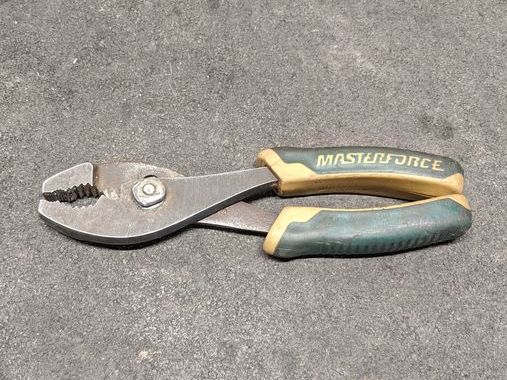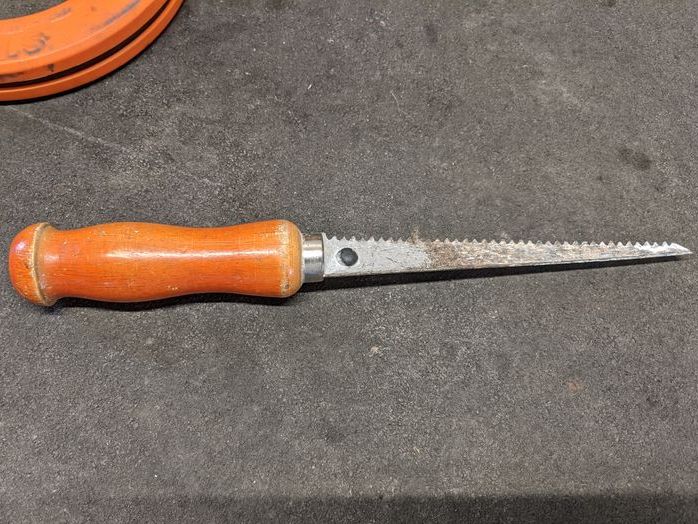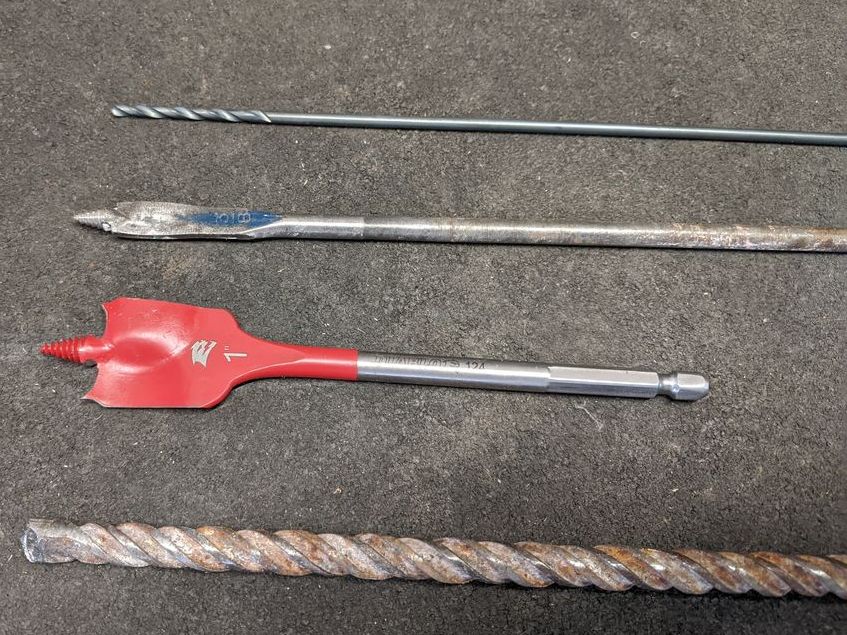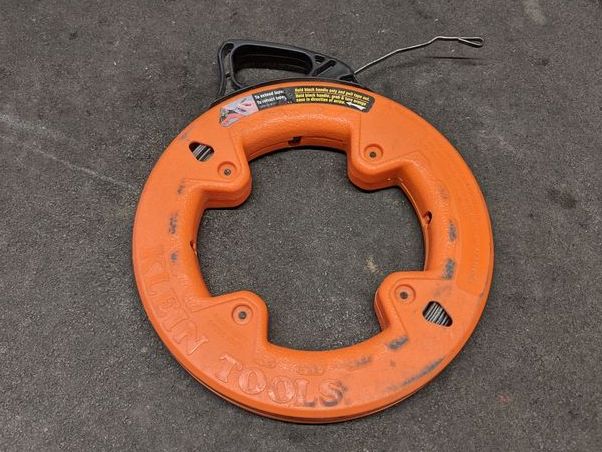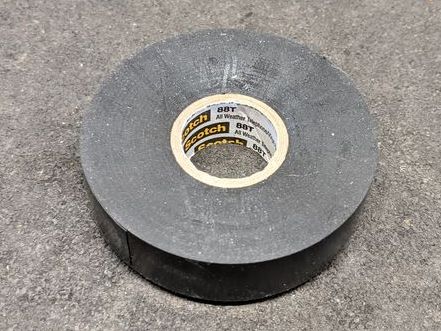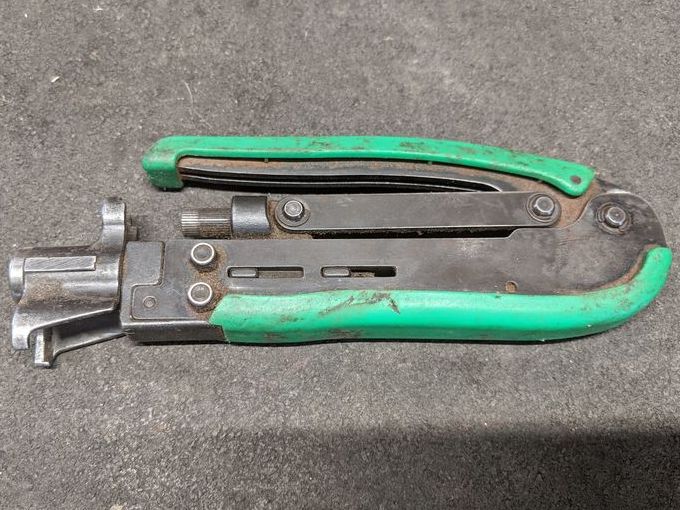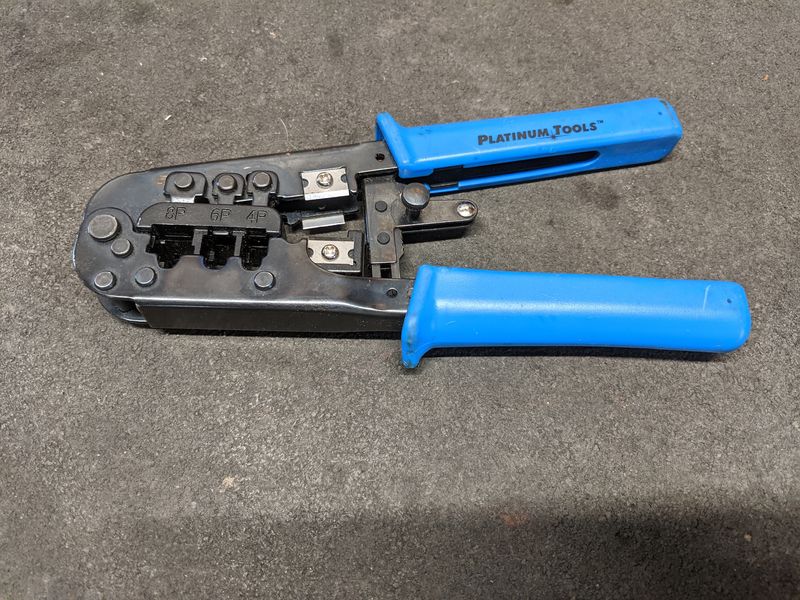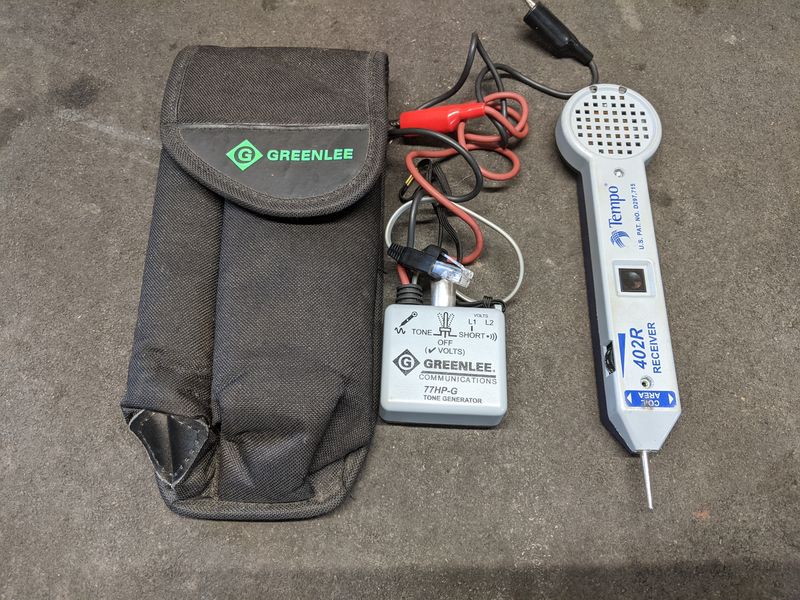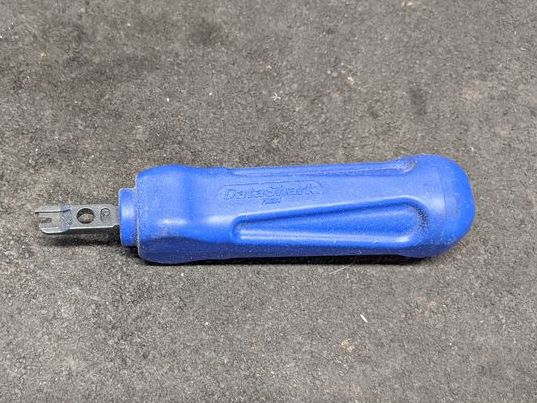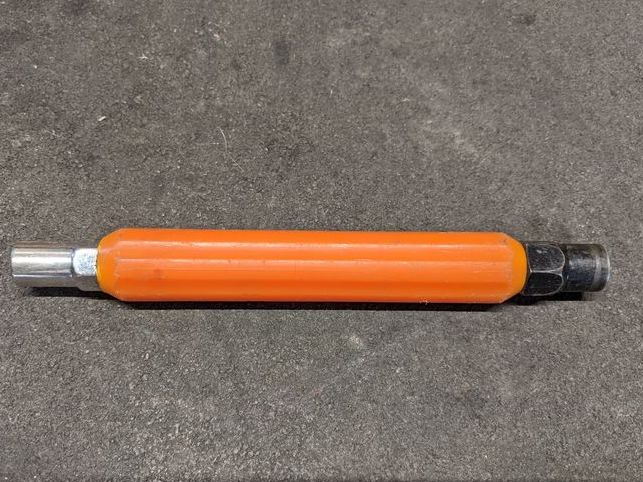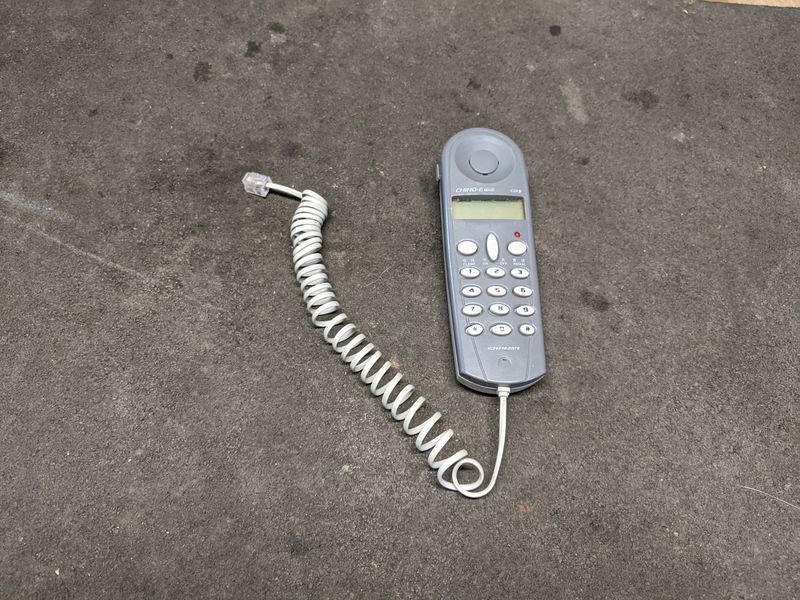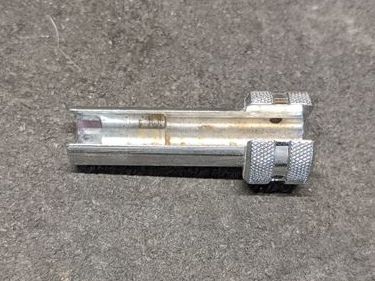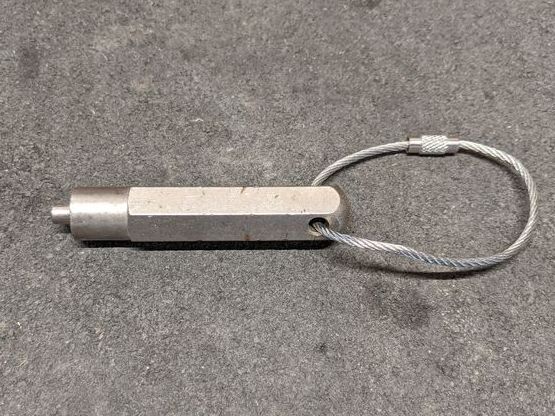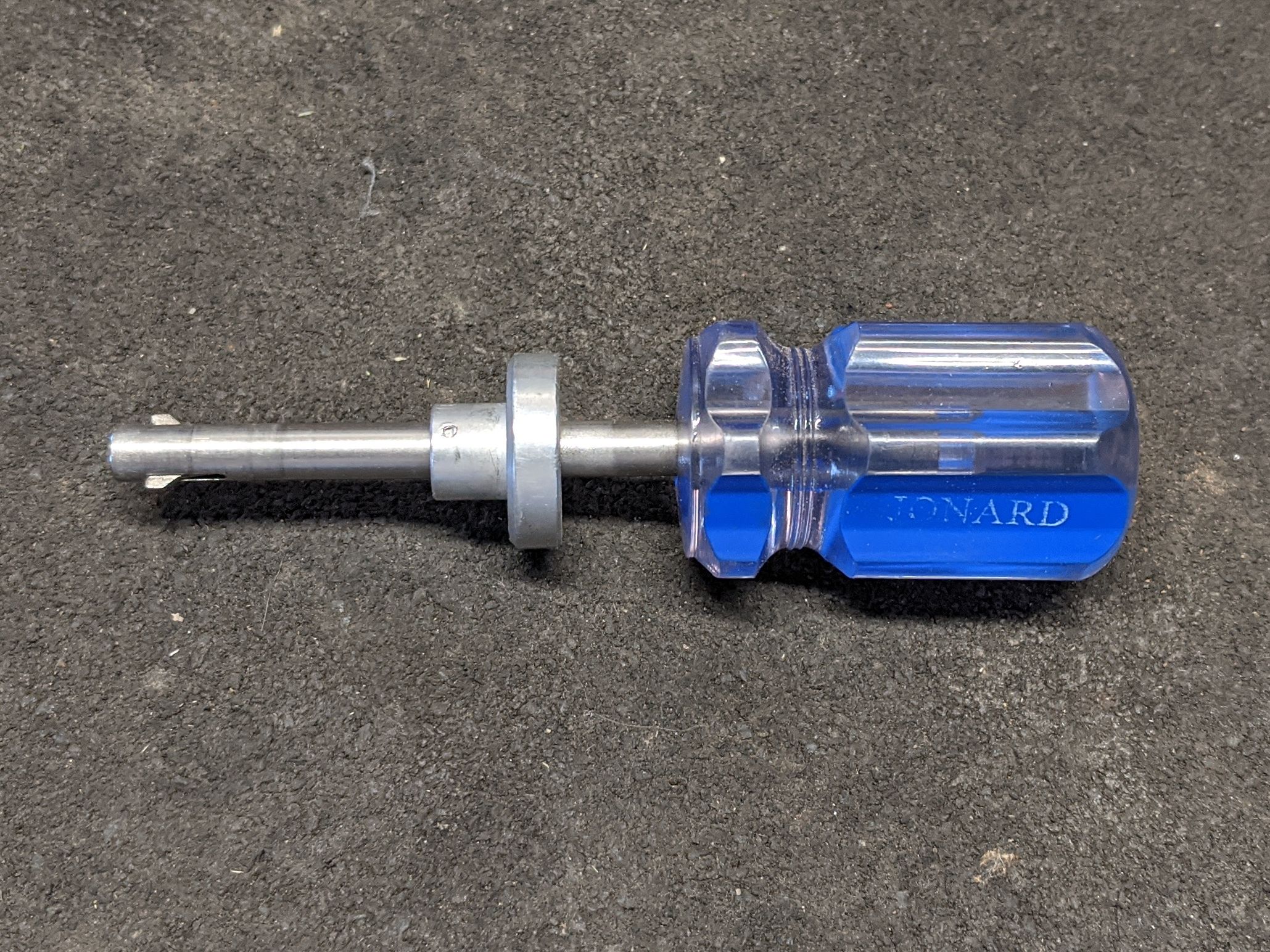Low-voltage Wiring Tools
These are the tools that I use to run wiring, so if you want to run your own line this will help you get the right tools to accomplish it. This is a companion article for my video: Wiring My Garage.
Cordless drill.
When I look at a drill it has to:
-
have a metal chuck
-
have a 1/2" chuck
If it has a 1/2" metal chuck then it’s going to have a better build quality; there are home gamer drills and pro grade drills, and the home gamer drills are more akin to toys in my opinion. It’s nice to also have a hammer mode for helping drill into concrete. DEWALT, Milwuakee, Makita, or Ridgid are the brands to buy, but just remember, when you choose a brand then you are buying into a battery line for all your future cordless tools.[1] Personally I like the Ridgid line of power tools for quality and value. They have good warranties on their tools, the batteries have lifetime warranties so when they wear out you can get them replaced, and Home Depot is a company I can trust to be around for a long time to warranty their tools. If you want a good deal the absolute best time to buy power tools is the week of Black Friday and leading into Christmas where Home Depot sometimes cuts their power tool prices by more than 50%.
Tape measure, pliers, diagonal cutters, utility knife, and other essential tools.
You don’t need to buy Snap-On but find something of decent quality. I recently picked up the 8" Doyle diagonal cutter from Harbor Freight and it has been a very good replacement for the worn out 6" cutter I had previously. I’ve been impressed with Harbor Freight’s Doyle brand so far and can recommend them for diagonal cutters and pliers.
A slip joint pliers, needle-nose, and linesman pliers are good pliers to start with.
Don’t get < 6" diagonal cutters. Get 6" or 8".
When looking at a tape measures try to avoid the gimmicky features. 16’ is the best all around tape that is comfortable to wear.
A good quality 6 in 1 screwdriver like this Lutz is a must have for any tool-belt or job.
My favorite utility knife is this yellow Stanley… I’ve tried others but love the hand hold of this and how quickly it can change out blades.
And of course you need a drywall saw to cut in outlets. I can’t imagine there being much discernable difference between drywall saws but I wouldn’t know, I have never tried any other ones.
Drill bits.
1/8" twist bit => 12" in length for locating walls. Sometimes you need to locate a wall in order to drill up into it. You can pull up the carpet from under the baseboard and drill down with a small bit to accomplish this. Or if the floor is hardwood or ceramic, then you can gently pry out the baseboard with a flat screwdriver or small prybar and drill down behind it so as not to put any hole in the visible flooring. These bits break quite often, especially when trying to angle them down behind baseboard so buy some cheap ones from Harbor Freight. Alternatively I’ve also used the metal rod from utility locating flags cut on a a 45-degree angle and drilled those down, with the added benefit of you can drill those straight through carpeting without worrying about it pulling threading.
3/8" self-feeding spade bit => 16" in length for drilling holes to pass wiring. This is the bit I have used the most often, by far. I highly prefer spade bits to twist bits when running line because you have a much greater feel from the bit when you are through a layer. You can not feel your bit passing layers as easily with a twist bit as you can with a spade bit. Get the good one’s like Bosch or Irwin or Diablo.
3/8" flex bit => 4’ in length (seen in the picture with the fishing rods) for drilling from inside the wall down into a basement or other access. Get the cheap ones from Harbor Freight for $8, the decent ones from the other big box stores are $40 and aside from springing back into shape after drilling don’t offer much of an advantage.
1" spade bit <= 6" for making holes larger.
3/8" masonry bit => 16" for drilling into concrete to pass wiring.
1/4" masonry bit for setting anchors.
Fishing tools.
Fish tape and fishing rods. Each has their own advantage and you do not need to spend a lot of money here. You can get by completely fine with the longer cheap yellow fishing rods from Harbor Freight. And sometimes I even prefer the smaller, cheaper Harbor Freight rods to my more expensive rods. They are smaller and bend easier so many times they work better. You can get crazy and get dart guns that shoot across false ceilings or magna-pulls that use magnets to pull wires through walls but 99% of the time a rod and/or tape will get the job done better than those gimmicky approaches.
Cable tools.
If you’re running coaxial line you’ll want these tools. In order of pictures: compression crimper, cable stripper, cable toner, 7/16" wrench. I don’t have much to say here except that you want compression fittings and a compression crimper. And the Cable Prep brand strippers are by far the best strippers; I wouldn’t look at any other stripper. And I’ve used a few different cable toners over the years, and this no name style is by far the best… I actually had problems with the Jonards I’ve used but never these cheap style toners. They take a strange 12V battery but it lasts forever.
Phone/Ethernet tools.
A crimper for crimping down RJ11 and RJ45 ends. It’s much better to spend a little more money and get a passthrough type crimper than the one that I am used to using. A radio toner like this Green Lee are great for tracing wires. And a punchdown tool for blocks and even to some wallplates.
And more specialized tools.
Most people won’t need these tools unless you are doing this for your job but these are some other useful tools for installing low voltage wiring. A can wrench with the common sizes for opening peds and other boxes. A test phone for checking for dial tones. And some security tools for removing shields or traps.
[1] I recently changed my stance on this, and don't care about sticking to one battery line any longer. I check reviews and compare specs and sale prices before buying tools and use this subjective value as the largest factor in my tool purchases. Return to reading.



